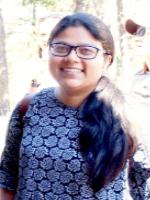Using Physical Computing to Drive Student Learning, Thinking and Action
,
Colorado Convention Center, Mile High Ballroom 4EF
Presenters
Session description
Purpose & objective
Participants will gain an in-depth understanding of the SchoolWide Labs open-source curricular units, through hands-on experience with the technology and investigations of phenomena. SchoolWide Labs has developed an innovative approach to make computational thinking (CT) accessible to middle school students in science and STEM courses. The curriculum is based on a long-standing research practice partnership between CU Boulder and Denver Public, informed by pilot programs in multiple districts with both urban and rural populations, and aligned with NGSS, ISTE and CSTA standards.
This session is designed to support middle school science and STEM teachers to incorporate sensor technology in their classrooms while increasing student engagement and promoting computationally rich communication. Teachers will first learn to use programmable Micro:Bit sensors to investigate phenomena. Using a curriculum called Sensor Immersion, teachers will investigate phenomena relating to the Micro:Bit sensors, create models to try to explain the phenomena, then learn to wire and program sensors to refine their model, create rich data displays and investigate phenomena on their own. The programming is done with Make Code, a block based interface designed for coding novices, there is also the option for more experienced programmers to use JavaScript.
Participants will consider the curriculum from the perspective of their students, in order to better understand what their students will learn. This approach which we call “student hat” has been shown to promote teacher reflective practice and support teachers in creating effective learning environments in their classrooms.
Phenomenon-based learning is about using very specific skills we have honed as teachers. Asking questions, and setting aside the idea that we as the teachers are the source of the information. Teachers who have grown to love this curriculum truly enjoy it because they have honed their skills in responding to students’ ideas and questions with more questions. Great teaching comes from helping students build their understanding not because they memorized the concepts we tell them, but instead from the concepts they built themselves and with their classmates from readings, simulations, labs, model creations, and discussions.
While exploring the curriculum, teachers will discuss how to attend to the intersection of educational equity, assessment and pedagogy. They will receive training on how to promote effective student-collaboration, leverage students’ lived realities in the classroom, and build consensus during whole-class discussions. Teachers will also receive support with conducting formative assessment that promotes rich student learning while efficiently collecting actionable feedback. This professional learning experience will give teachers the tools, skills and knowledge to give all students equitable access to rich, relevant STEM experiences.
Outline
Unit launch - Motivate the session with a compelling real-world example where an artist built a sensor display to explore air pollution in the Bay area. Using student hat they will create noticings and wonderings based on a created sensor display. Instructional routines will be introduced and are listed below (15 min)
Phenomenon Based Teaching
Driving Question Board
Create iterative models to describe our emerging understanding of the sensor systemr
Introduction to Programmable Sensors - participants will discuss how programmable sensors work and then engage in pair programming to collect data from the light sensor. They will progress from using the simulated Micro:Bit to downloading their program to the Micro:bit hardware. The CS concept of conditional statements and sensor thresholds will be explored (15 min)
Wire and program Micro:Bit sensors
Scaffolding CT Explorations
How to lead class discussions
Using debugging resources
Sensor Programming Groups - Participants will work in small groups focusing on a new sensor to apply learning from the light sensor work and increase comfort with the technology. Participant groups will have the opportunity to extend the learning, add features and develop a project that connects to their identity, interests and geography. Each group will share out their experience to develop a classroom understanding of the sensor system(40 min)
Use Micro:Bit sensors to conduct investigations
Create a sensor display using the Micro:Bit sensors
Jigsaw Sensor Immersion curriculum lessons and present as expert groups
Roleplaying Roles in structured groupwork
Structuring student project work
Guiding storyline approach
Modifying for your classroom: Groups will have the opportunity to extend their sensor system to include multiple sensors and more complex programming. There will be an emphasis on modifying the materials for the specific needs of participants’ students. We will end with a discussion of ways to apply the approaches to the other units and across the curriculum. (20 min)
Modifying curriculum to the needs of your students
Curriculum extensions
Expanding on student developed projects.
Connecting classroom work back to the community.
Supporting research
SchoolWide Labs Website with research links.
https://www.colorado.edu/program/schoolwide-labs/
Biddy, Q. Gendreau Chakarov, A., Bush, J.B., Hennessy Elliot, C. Jacobs, J., Recker, M., Sumner, T., & Penuel, W. (2021). A professional development model to integrate computational thinking into middle school science through co-designed storylines. Contemporary Issues in Technology and Teacher Education, 21(1). https://citejournal.org/volume-21/issue-1-21/science/a-professional-development-model-to-integrate-computational-thinking-into-middle-school-science-through-codesigned-storylines
Gendreau Chakarov, A., Biddy, Q., Hennessy Elliott, C., & Recker, M. (2021). The Data Sensor Hub (DaSH): A Physical Computing System to Support Middle School Inquiry Science Instruction. Sensors, 21(18), 6243.
https://www.mdpi.com/1424-8220/21/18/6243#:~:text=Open%20AccessArticle-,The%20Data%20Sensor%20Hub%20(DaSH)%3A%20A%20Physical%20Computing%20System,Middle%20School%20Inquiry%20Science%20Instruction
From Data Collectors to Data Producers: Shifting Students’ Relationship to Data by Lisa Hardy, Colin Dixon & Sherry Hsi
https://www.tandfonline.com/doi/abs/10.1080/10508406.2019.1678164
Storyline Research
https://www.nextgenstorylines.org/papers
Session specifications
Tablet: Android, iOS, Windows
or download the micro:bit app for apple or android
Empowered Learner
- Students understand the fundamental concepts of technology operations, demonstrate the ability to choose, use and troubleshoot current technologies and are able to transfer their knowledge to explore emerging technologies.
- Students build knowledge by actively exploring real-world issues and problems, developing ideas and theories and pursuing answers and solutions.
- Students break problems into component parts, extract key information, and develop descriptive models to understand complex systems or facilitate problem-solving.
 Return
Return Explore and create: Deep-dive Creation lab
Explore and create: Deep-dive Creation lab  Trips and Tours
Trips and Tours Preregistration Required
Preregistration Required
